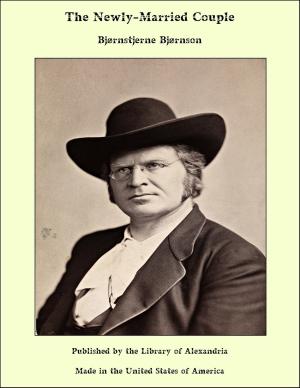Arrah Neil: Times of Old
Nonfiction, Religion & Spirituality, New Age, History, Fiction & Literature| Author: | George Payne Rainsford James | ISBN: | 9781465606976 |
| Publisher: | Library of Alexandria | Publication: | March 8, 2015 |
| Imprint: | Language: | English |
| Author: | George Payne Rainsford James |
| ISBN: | 9781465606976 |
| Publisher: | Library of Alexandria |
| Publication: | March 8, 2015 |
| Imprint: | |
| Language: | English |
About two centuries ago, in times with which we are all familiar, as they comprised a period of English history, the events of which have affected the social condition of the British people more than almost any which have preceded or followed that period--about two centuries ago, there stood upon the slope of a gentle hill, in a picturesque part of England, an old brick mansion of considerable extent, and of a venerable though flourishing exterior. On the right hand and on the left there was a wood of various trees, amidst which Evelyn might have delighted to roam, choice children of the British forest, mingled with many a stranger grown familiar with the land, though not long denizened in it. In front was a terrace flanked with quaintly-carved flower-pots of stone; and beyond that stretched a lawn several roods in extent, leaving the mansion fully exposed to the eye of every one who wandered through the valley below. Beyond the lawn again a wide view was obtained over a pleasant scene of hill and dale, with the top of a village church and its high tower peeping over the edge of the first earth-wave; and far off, faint and grey, were seen the lines of a distant city, apparently of considerable extent. The house itself had nothing very remarkable in its appearance, and yet circumstances compel us to give some account of it, although it is but building up to pull down, as the reader will soon perceive. The middle part consisted of a large square mass of brickwork, rising somewhat higher, and projecting somewhat farther, than the rest of the building. It had in the centre a large hall-door, with a flight of stone steps, and on each side of the entrance were three windows in chiselled frames of stone. On either side of this centre was a wing flanked with a small square tower, and in each wing and each tower was a small door opening upon the terrace. Manifold lattices, too, with narrow panes set in lead, ornamented these inferior parts of the building in long straight rows, and chimneys nearly as numerous towered up from the tall peaked roofs, not quite in keeping with the trim regularity of the other parts of the edifice. The whole, however, had a pleasant and yet imposing effect when seen from a distance; and to any one who looked near, there was an air of comfort and cheerfulness about the mansion which well compensated for the want of grace. The view, too, from the terrace and the windows was in itself a continual source of calm and high-toned pleasure to the minds that dwelt within, for they were those that could appreciate all that is lovely, more especially in the works of God; and over the wide scene came a thousand varying aspects, as the clouds and sunshine chased each other along, like the poetical dreams of a bright and varying imagination. Morning and sunset, too, and moonlight and mid-day, each wrought a change in the prospect, and brought out something new and fair on which the eye rested with delight.
About two centuries ago, in times with which we are all familiar, as they comprised a period of English history, the events of which have affected the social condition of the British people more than almost any which have preceded or followed that period--about two centuries ago, there stood upon the slope of a gentle hill, in a picturesque part of England, an old brick mansion of considerable extent, and of a venerable though flourishing exterior. On the right hand and on the left there was a wood of various trees, amidst which Evelyn might have delighted to roam, choice children of the British forest, mingled with many a stranger grown familiar with the land, though not long denizened in it. In front was a terrace flanked with quaintly-carved flower-pots of stone; and beyond that stretched a lawn several roods in extent, leaving the mansion fully exposed to the eye of every one who wandered through the valley below. Beyond the lawn again a wide view was obtained over a pleasant scene of hill and dale, with the top of a village church and its high tower peeping over the edge of the first earth-wave; and far off, faint and grey, were seen the lines of a distant city, apparently of considerable extent. The house itself had nothing very remarkable in its appearance, and yet circumstances compel us to give some account of it, although it is but building up to pull down, as the reader will soon perceive. The middle part consisted of a large square mass of brickwork, rising somewhat higher, and projecting somewhat farther, than the rest of the building. It had in the centre a large hall-door, with a flight of stone steps, and on each side of the entrance were three windows in chiselled frames of stone. On either side of this centre was a wing flanked with a small square tower, and in each wing and each tower was a small door opening upon the terrace. Manifold lattices, too, with narrow panes set in lead, ornamented these inferior parts of the building in long straight rows, and chimneys nearly as numerous towered up from the tall peaked roofs, not quite in keeping with the trim regularity of the other parts of the edifice. The whole, however, had a pleasant and yet imposing effect when seen from a distance; and to any one who looked near, there was an air of comfort and cheerfulness about the mansion which well compensated for the want of grace. The view, too, from the terrace and the windows was in itself a continual source of calm and high-toned pleasure to the minds that dwelt within, for they were those that could appreciate all that is lovely, more especially in the works of God; and over the wide scene came a thousand varying aspects, as the clouds and sunshine chased each other along, like the poetical dreams of a bright and varying imagination. Morning and sunset, too, and moonlight and mid-day, each wrought a change in the prospect, and brought out something new and fair on which the eye rested with delight.















